Recently Added
 News
News
Case Study: ICU-Based Chemotherapy for High-Risk Cardiac DLBCL Patient
A 34-year-old woman with newly diagnosed mediastinal diffuse large B-cell lymphoma developed alarming cardiac symptoms during her initial hospitalization.
 News
News
EMR-Integrated Tool Identifies PAH Candidates Missed by Standard Referral Pathways
Pulmonary arterial hypertension is a life-threatening form of right heart failure, with poor survival when treatment is delayed. Unfortunately, because PAH has vague symptoms like shortness of breath and requires invasive testing, it typically ...
 News
News
Case Study: EV-ICD and Epicardial Ablation in a 40-Year-Old Patient
A 40-year-old man presented with palpitations and dizziness that had been ongoing for several days. EMS found that he was in sustained monomorphic ventricular tachycardia and performed cardioversion to restore regular heart rhythm. In ...
 Course
Course
Advanced Heart Failure Therapies: Who, When, & What
Of the more than 6 million Americans living with heart failure, approximately 10% have advanced heart failure or Stage D Heart Failure. Patients in this category should be evaluated for advanced therapy options including heart transplant ...
 Course
Course
Devices Can Play a Key Role in Managing Heart Failure
Even with gold-standard treatment, heart failure causes tremendous distress in patients, with debilitating symptoms and pain that can impact their day-to-day functioning, social relationships, and mental health. Studies have found that ...
 Course
Course
The Latest in CTEPH Diagnosis and Treatment
Research has shown that around 3.8% of patients with pulmonary embolism go on to develop chronic thromboembolic pulmonary hypertension (CTEPH). But what are the risk factors, and how can providers best manage these patients?
 Course
Course
Cardiotoxic Therapies in Cancer Treatment: What Providers Need to Know
Thanks to advances in treatment, more people are surviving cancer and living into their 60s, 70s, and beyond. But with this increase in survival has also come an increase in cardiovascular disease for this population. As a result, providers ...
 Course
Course
Cardiac Amyloidosis: What Providers Should Know About Screening, Diagnosis, and Treatment
Over the past two decades, there has been a significant increase in both the incidence and prevalence of cardiac amyloidosis. This is most likely due to improved screening and diagnosis. However, even with these advances, delayed diagnosis ...
 Course
Course
Understanding Hemodynamic Profiles in Heart Failure
Managing heart failure requires a comprehensive approach that integrates multiple sources of information, rather than relying on a single data set, says Paul Forfia, MD, co-director of Pulmonary Hypertension, Right Heart Failure & CTEPH ...
 Course
Course
Diagnosing the Apical Variant of Hypertrophic Cardiomyopathy
A 60-year-old man with a history of hypertension was admitted to the hospital after three days of a drooping face and right arm weakness. He had no chest pain or shortness of breath, and no prior history of irregular heartbeat. However, ...
 Course
Course
Breaking Down Updated Aortic Guidelines for Echocardiographers
In 2022, the American College of Cardiology and the American Heart Association released updated aortic guidelines that synthesized some 20 separate guidelines issued by nearly as many organizations over the previous 12 years.
 Course
Course
Technology Update: Redefining Echocardiography Diagnostics and Education with AI, AR, and Beyond
For a photographer or videographer, it’s second nature to use lighting to get a better view of a subject. But few cardiac imagers think about moving light sources within the heart.
 Video
Video
Pulmonary Arterial Hypertension and RV Failure
The average time from symptom onset to accurate diagnosis of pulmonary arterial hypertension (PAH) is 2.8 years, and more than half of patients have already progressed to functional class 3 or 4 by the time of diagnosis. Overlapping symptoms ...
 Video
Video
REBIRTH Trial: Evaluating Bromocriptine Therapy for Peripartum Cardiomyopathy
In this presentation, Dr. Deborah Crabbe, Cardiologist at Temple University Hospital and Professor of Medicine at Lewis Katz School of Medicine at Temple University, outlines the REBIRTH Trial, a randomized trial that reviews the use of ...
 Video
Video
Earlier Detection and Treatment of Advanced Heart Failure
In this presentation, Dr. Eman Hamad, Director, Advanced Heart Failure and Transplant Program at Temple University Hospital, shares best practice approaches to physician collaboration for better patient outcomes.
 Document
Document
Mechanical Circulatory Support Program
Recent advances in mechanical pump design and related care have dramatically improved the daily function, health, and quality of life for patients with debilitating heart failure.
 Document
Document
Referral Guidelines for Advanced Heart Failure Therapy
REFERRAL GUIDELINES FOR ADVANCED HEART FAILURE THERAPY: >2 PROMPT CONSULTATION
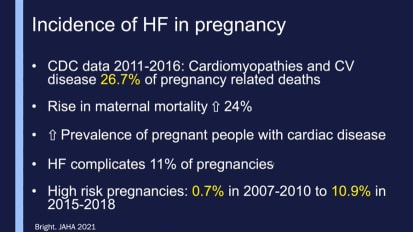 Video
Video
Heart Failure During Pregnancy
Heart failure is a complication in as many as 11% of pregnancies. However, normal cardiovascular changes during pregnancy can mimic heart failure symptoms, making it easy to misdiagnose.
 Video
Video
Multidisciplinary Group Approach to Managing Pregnant Patients with Cardiovascular Disease
Cardio obstetrics requires a multidisciplinary, patient-centered approach to managing heart failure and other cardiovascular issues in pregnant patients.
 Video
Video
Heart Failure with Preserved Ejection Fraction and Pregnancy
One of the most prevalent types of heart failure during pregnancy, heart failure with preserved ejection fraction and pregnancy (HFpEF), is associated with increased risk of hospitalization and adverse pregnancy outcomes.
 Video
Video
Telemetry Tips Part 4: Sinus Node Dysfunction
In this video, Dr. Joshua Cooper, Director, Cardiac Electrophysiology, Temple University Hospital, reviews patterns of sinus node dysfunction, as well as fake-outs -- including hidden ectopic beats, vagal events, and accelerated junctional rhythm.
 Video
Video
Telemetry Tips Part 3: Electrical Artifacts
Electrical artifacts – or measured cardiac potentials that are not related to electrical activity of the heart – can mimic a wide range of arrhythmias and are seen in 100% of patients on telemetry.
 Video
Video
Telemetry Tips Part 1: Atrial Flutter and Atrial Tachycardia
Atrial flutter & atrial tachycardia with 2:1 and 1:1 AV conduction is mistakenly called "sinus tachycardia" and is often missed.
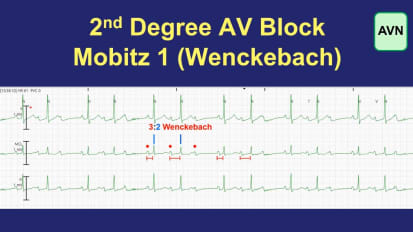 Video
Video
Telemetry Tips Part 2: Mobitz 1 Block vs. Mobitz 2 Block
Dr. Joshua Cooper, Director, Cardiac Electrophysiology, Temple University Hospital, takes a deep dive into distinguishing Mobitz 1 from Mobitz 2 block, specifically on if a heart block is occurring in the AV node or in the His-Purkinje system.
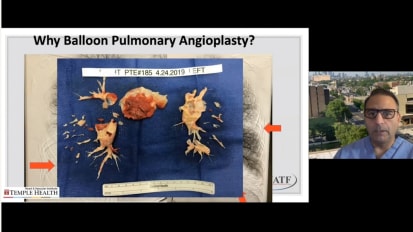 Video
Video
Balloon Pulmonary Angioplasty (BPA) Overview
Dr. Riyaz Bashir, Director, Vascular and Endovascular Medicine at Temple Health explains the applications for Balloon Pulmonary Angioplasty, or BPA.
 News
News
Aortic dissection involving the ascending aorta (type A) is a life-threatening emergency that should usually be treated surgically. In type A dissections, mortality can be up to 80%, and can be reduced to 10-20% through surgical treatment.
 News
News
Referral Protocol for Pulmonary Hypertension, Right Heart Failure, and CTEPH Program at Temple
When it comes to identifying and treating the complex causes of pulmonary hypertension and its and affiliated conditions, the Temple Heart & Vascular Institute is the clear choice for your patients.
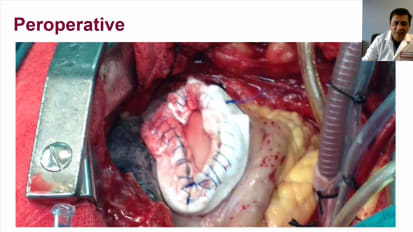 Video
Video
Successful Surgical Repair of Giant Left Ventricular Aneurysm With Porcelain Left Ventricle
Dr. Kewal Krishan, a senior cardiac surgeon at Temple Health, reviews successful repair of calcific left ventricular aneurysm with with porcelain ventricle.
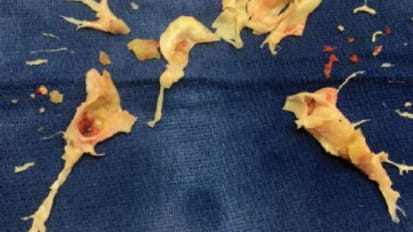 News
News
A healthy, 20-year-old male from Georgia began suffering from shortness of breath, chest pain, and syncope. Patient had no known history of DVT or PE, but a CT scan revealed 'extensive pulmonary emboli.'
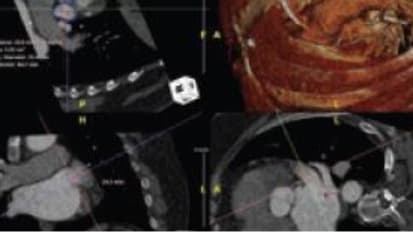 News
News
Advanced Diagnosis and Therapy for Paroxysmal Atrial Fibrillation and Chronic Blood Loss Anemia
78-year-old Temple Heart & Vascular patient regains life with WATCHMAN device
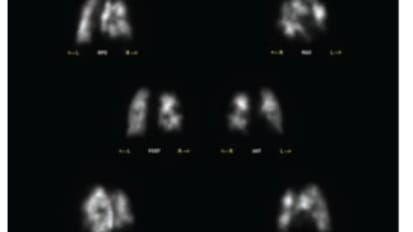 News
News
Paul B. was 69 years old when he sought out care in 2017 for worsening shortness of breath that was limiting his daily activities.
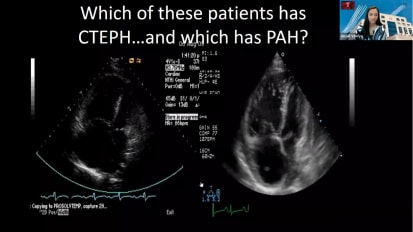 Video
Video
CTEPH Diagnosis and Management in 2022: Grand Rounds with Dr. Anjali Vaidya
Anjali Vaidya, MD, FACC, FASE, FACP, Co-Director of Pulmonary Hypertension, Right Heart Failure, and CTEPH Program at Temple Health shares advanced diagnosis and managment for chronic thromboembolic pulmonary hypertension.
 Video
Video
Optimal Pharmaceuticals to Support Blood Pressure Management
Paul H. Pronovost, MD, FACP, FASN; Interim Chief, Section of Nephrology, Hypertension and Kidney Transplantation at the Lewis Katz School of Medicine at Temple University discusses challenges in the medical management of hypertension.
 Video
Video
Ajaykumar D. Rao, MD, MMSc, FACP, discusses the complexity of patients with resistant hypertension and secondary hypertension, and when patients benefit from a referral to clinical hypertension experts.
 Video
Video
Strategies for Patient Adherence to Blood Pressure Management Therapies
Daniel Edmundowicz, MS, MD, FACP, FACC, Chief, Cardiology, Temple University Hospital discusses the challenges of maintaining long-term adherence of preventative medications for hypertension.